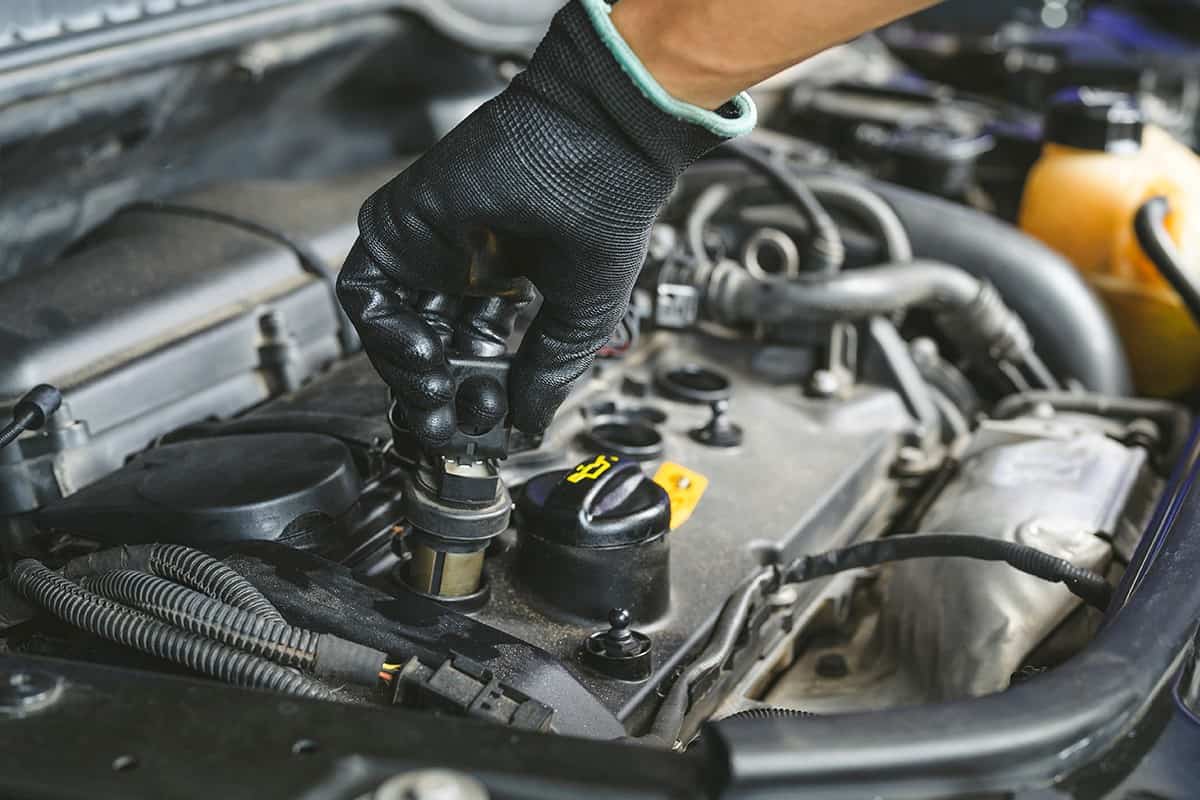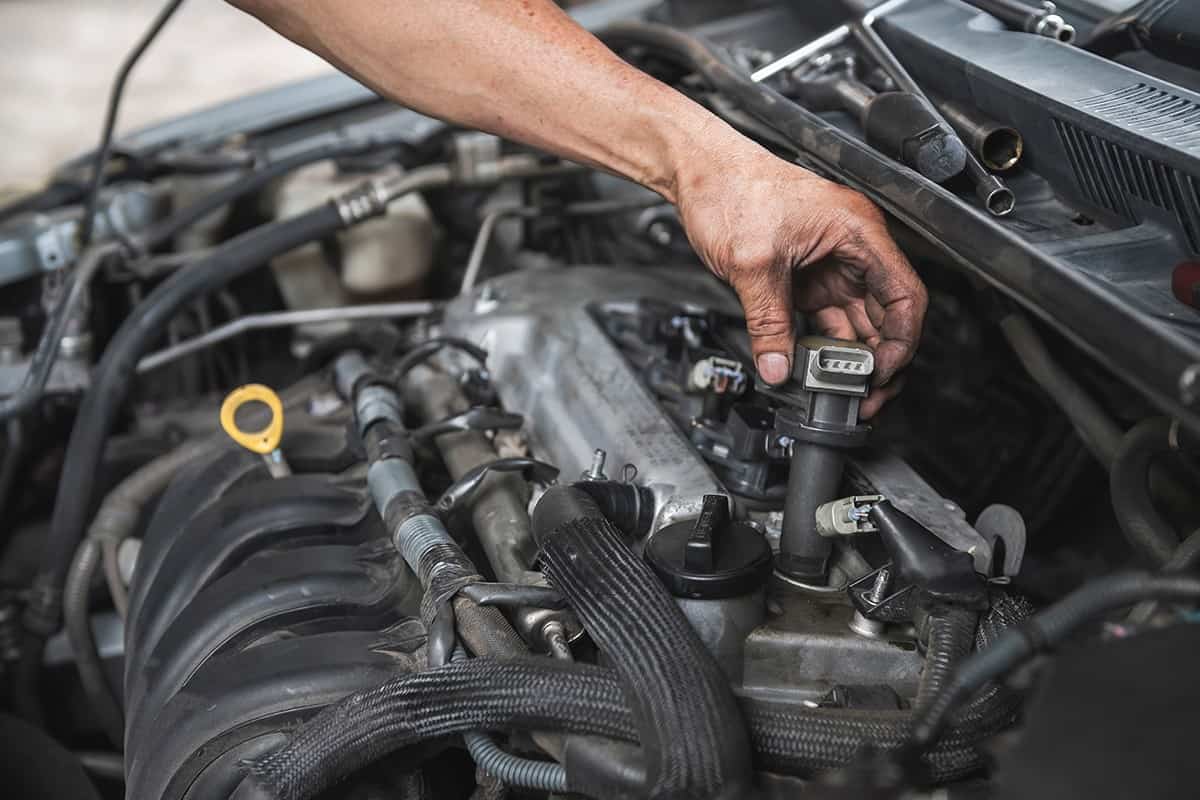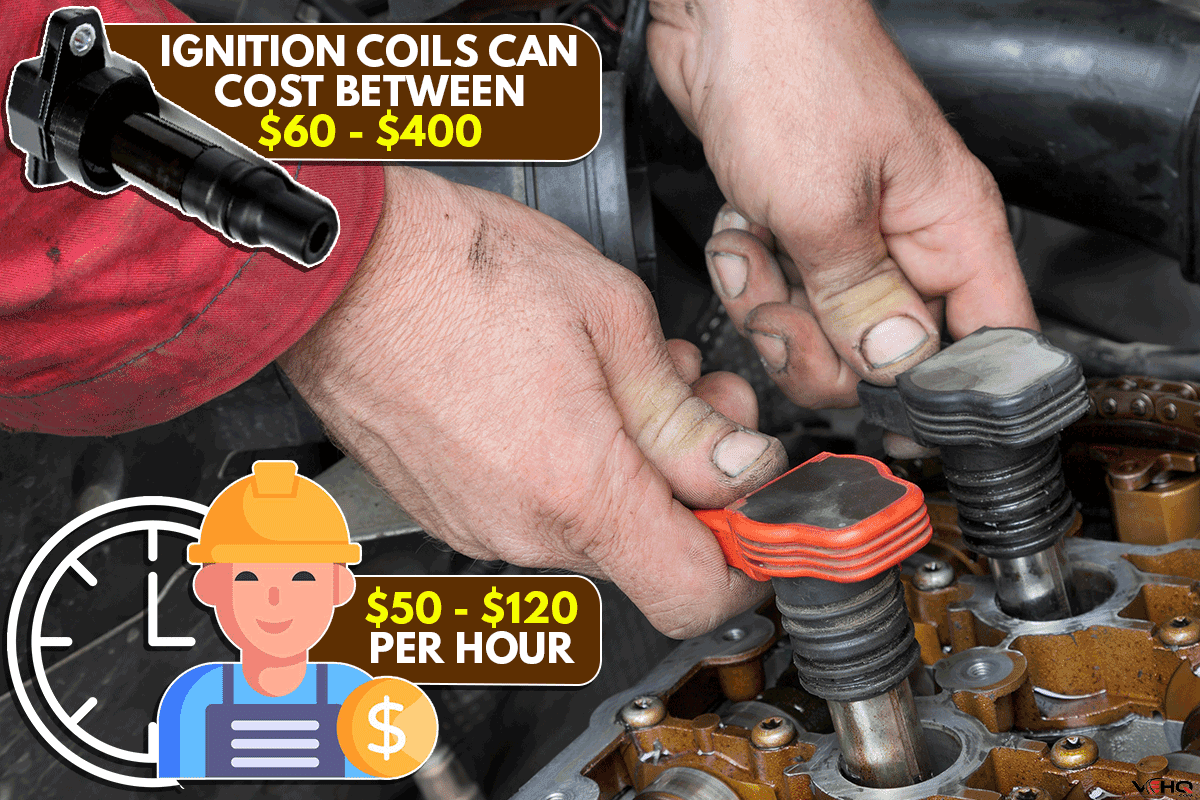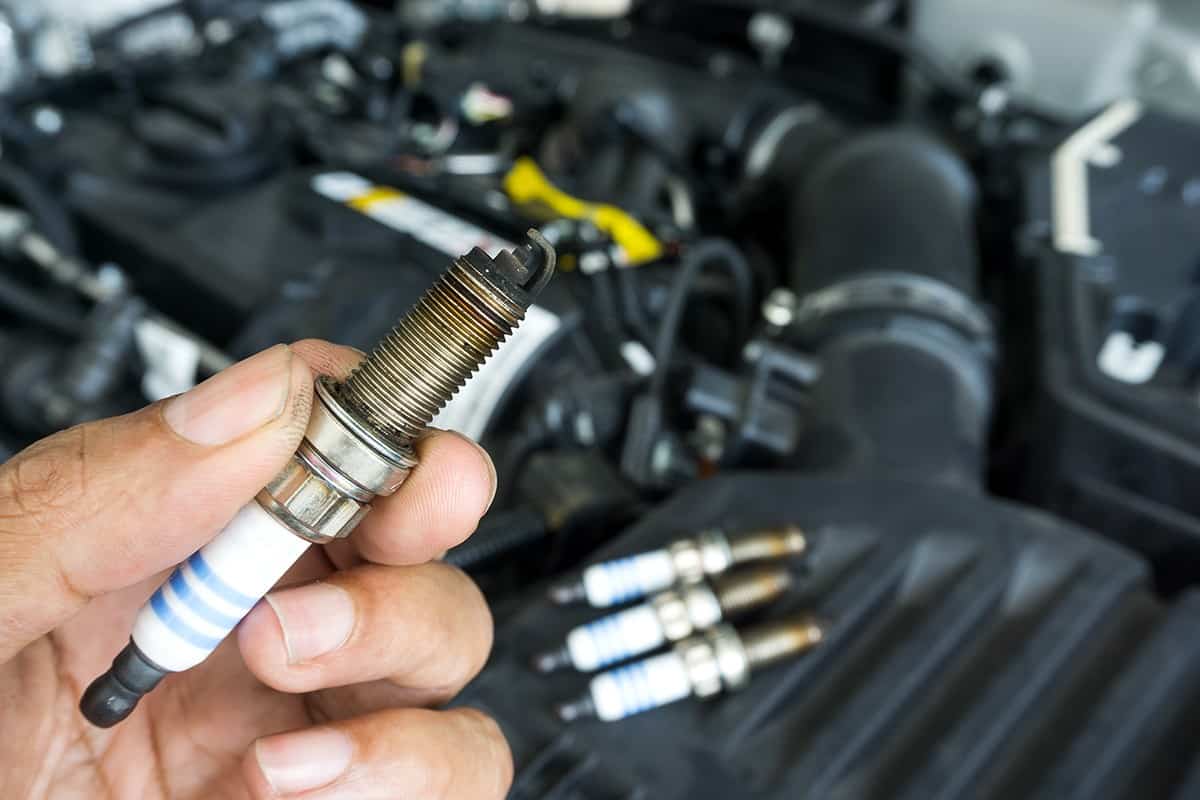You've been planning a trip with the family, but then your vehicle started acting up because of a problem with the ignition coil. But how long will it take to fix it? We did the research and discovered the answer to your problem!
The answer depends on the model of the vehicle and how bad the damage is. It can take anywhere between 30 minutes to a few hours; it could take several hours if it has multiple cylinders for each coil.
The replacement time depends on many variables. You also might want to know how much it can cost to replace the ignition coils. We will cover that and many more details concerning ignition coils. Read on to learn more.
Replacing Ignition Coils And How Long It Takes
The process of replacing coils may take longer than expected. This is because the process involves many steps and can be affected by several variables. If you have a brand-new car, chances are it has multiple coils and packs.

These things need to be disassembled first before you're able to remove the bad ignition coils and replace them with new ones. Given that, you need to take into account different situations.
Detecting Bad Ignition Coils
If you already figured out that you have bad ignition coils, you can skip this part and head on to the next heading.
But for those who do not know or aren't sure if they have bad ignition cables, this is for you.
If you have an On-Board diagnosis system, it'll be able to detect any issue in your vehicle including the ignition coil. And it'll only take a few minutes to do so. But here are a few indicators that you have bad ignition coils:
Poor Fuel Economy
If you start to notice that your vehicle is getting lesser mileage compared to what it was before, this is a clear sign that you have ignition coil failure.
Backfiring
You can easily spot (or smell) this indicator when you notice black smoke coming out of the exhaust pipe.
This usually happens when unused fuel exits through the exhaust pipes and it can cause major problems that can cost a pretty penny to fix.
Jerking Engine
It's not normal for your vehicle to jerk while accelerating. This can be caused by bad ignition coils.
Trouble Starting Engine
An engine that doesn't start smoothly may be an indicator that your vehicle needs to be checked for bad ignition coils.
You may notice that it starts but immediately dies afterward.
Check Engine Light
A faulty ignition coil is one of the several problems that can cause your Check Engine light to come on.
If you see the engine light blinking, you might want to check your ignition coils. You can also run a diagnostic test using an OBD-II scanner, or let a mechanic do it.
Codes P0350 to P0362 indicate that there's an ignition coil problem.
How to Replace Ignition Coils

Replacing your car's ignition coils can be done in the comfort of your garage as long as you have the right tools.
Here's what you'll need:
- A basic tool kit
- A multimeter
- New ignition coils
1. Ensure Your Safety
Let your vehicle cool down, apply the emergency brake, and pop the hood.
Before you disconnect the cable to start working, read the manual first. Whether or not it is necessary to disconnect the cable may depend on your specific vehicle. You can optionally use a memory keeper while doing this.
Check out this memory keeper on Amazon.
2. Getting Into The Ignition Coils
Removing the coils themselves isn't a hard task. But getting into it with all the parts on top or surrounding it can take some time. It could reach hours depending on the complexity.
That said, you'll need to remove obstacles such as the ignition coil insulator boots, the upper plenum/intake manifold, and such. You should also go ahead and check your vehicle's manual before proceeding.
When you finally spot the ignition coil, you can easily remove it. Simply disconnect the plastic connectors. It's also possible for the plastic connector to break due to wear and tear. In this case, you can always replace the connector.
The next thing to do is to unscrew the coil, hold down the bolts and remove the coil.
If both the coils have gone bad, you should replace them one at a time. You don't need to replace both coils if only one of them has gone faulty.
Once done replacing, check for any oil or antifreeze contaminants. These should be repaired as well to prevent leaks and other damage.
3. Replacing the Spark Plugs
When the damage reaches the spark plugs as well, you may need to replace them. You can do so by reaching the engine cylinders and bringing out the plugs with a wrench. This part only takes a few minutes to do.
4. Lubricate The Coils
Once you install the ignition coils, carefully check the length and all the connection and terminal pins. Afterward, you may apply dielectric grease on the inside tip of the new ignition coil insulator boot.
Greasing the replacement coil would prevent moisture from seeping in and for ease of removal in the future.
Check out this dielectric grease on Amazon.
How Much Does It Cost To Replace Ignition Coil

When replacing your ignition coils, you're not only thinking about the time it takes but the money it takes. Read on to know the numbers.
Ignition coils can cost anywhere between $60 or $400, and even more in some cases. If you're thinking of bringing your vehicle to a local mechanic, you also need to consider the labor costs for installing an ignition coil. This can be around $50 to $120 per hour.
So if you were to do the math, the total cost will be around $100 to $500. Again, depending on complexities.
Types Of Ignition Coils
There are four types of ignition coils available today:
- Electronic Ignition Coil
- Conventional Ignition Coil
- Coil-on-Plug Ignition Coil (COP)
- Distributor-less Ignition Coil (DIS)
There are also ignition coil packs being sold in the market but the main takeaway is that when one coil becomes faulty, the rest of the pack will be useless.
How Long Do Ignition Coils Last?
Typically, ignition coils become faulty after reaching 100,000 miles. But, it can become faulty ealier if it's exposed to extreme temperatures, moisture, vibration, and corrosion.
Another thing that can affect your ignition coils is voltage overload, a higher voltage means that your ignition coils would have to work twice as much.
Can I Drive My Car With Bad Ignition Coils?

You can do that, but it's not advisable. You can still drive your car on the way to a mechanic to get it fixed, but prolonged usage may lead to major damage that goes far beyond bad ignition cables.
It can damage the catalytic converter and other parts of the car which will cost a lot more.
Can Spark Plug Damage Ignition Coil?

Yes, there's a possibility that a spark plug can damage your ignition coils. If you happen to have a faulty spark plug that is dirty, misfiring, or worn, it can eventually lead to the death of your ignition coils.
In Conclusion
To sum it up, replacing an ignition coil is all about complexity. The more complex your car parts are, the more time it’ll take to get to the ignition coil. Removing, replacing, and testing the ignition coil itself will only take at least half an hour to an hour.
If you’re not so confident with your mechanical talents, it would be better to consult a professional mechanic to avoid any damage.
Made it to the end? Here are other articles you might find helpful:


